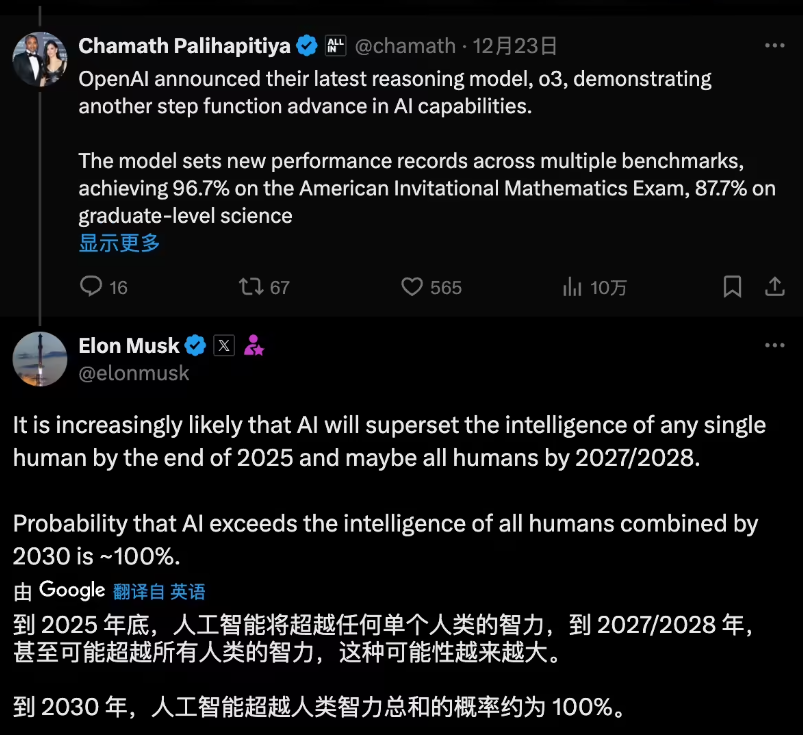Elon Musk recently released an astonishing prediction on the future development of artificial intelligence on the X platform, which triggered widespread discussion and attention. He boldly predicted that the intelligence of AI will quickly surpass that of humans in the next few years, and even surpass that of all humans combined in just a few years. This prediction is not groundless, but is based on the observation and judgment of the current rapid development of AI technology. It has also triggered people's concerns about the potential risks of AI and thinking about the future development direction. This article will analyze in detail Musk’s predictions and other experts’ views on the future development of AI, and explore its impact on human society.
Billionaire Elon Musk published the latest predictions about artificial intelligence (AI) on his social platform X, saying that AI technology will make amazing progress in the next few years. He said that it is expected that by the end of 2025, the intelligence of AI will surpass that of any single individual, and by 2027 to 2028, AI may even surpass the intelligence of all humans. Musk's prediction attracted widespread attention, with many people shocked by the speed and potential impact of AI.

Musk pointed out in the post that the current human attention and understanding of the development of AI are still insufficient. With the rapid development of technology, he believes that AI will demonstrate more powerful intelligence in the next few years and may completely change the way humans live and work. He mentioned that with the continuous improvement of AI capabilities, by 2030, the possibility of AI surpassing all human intelligence will be close to 100%. This view has triggered heated discussions in the technology community and the public.
At the same time, former OpenAI collaboration member Leopold Aschenbrenner also warned about the future development of AI. He believes that the development of AI may bring greater harm than its benefits, especially when AI develops general artificial intelligence (AGI) that is equivalent to human intelligence, which may trigger a series of negative effects. Therefore, all sectors of society need to take the regulatory and ethical issues of AI seriously.
The views of Musk and Aschenbrenner remind us that although the advancement of AI brings endless possibilities, we must also be wary of its potential risks. In the future, how to balance the development of AI and human safety will be an urgent challenge that needs to be solved.
Highlight:
By the end of 2025, AI intelligence is expected to surpass the human intelligence of a single individual.
Between 2027 and 2028, AI may surpass all human intelligence.
The development of AI in the future may bring greater harm than benefits, and we need to pay attention to its potential risks.
The views of Musk and Aschenbrenner have sounded the alarm for us. The rapid development of AI brings both opportunities and huge challenges. In the future, how to avoid risks and ensure the safe and reliable development of AI will be a common issue faced by all mankind. It requires governments, enterprises and individuals to work together to formulate corresponding strategies and measures, so that we can enjoy the convenience brought by AI while avoiding potential risks.